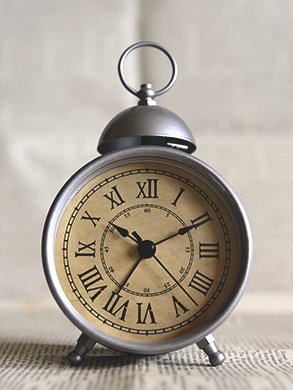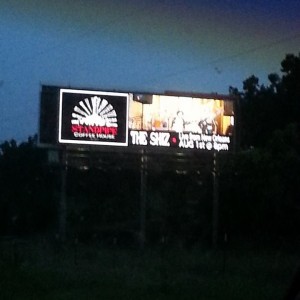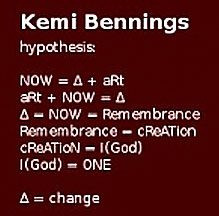This is a response to an interview I recently read given by my University piano professor Richard Zimdars, for Fanfare Magazine. The last question posed is a worthy one:
Q: I am very concerned about the role that classical music will play in America’s future, what with the dwindling of music classes in public schools, and the evident aging of audiences at classical music events. As someone who has enjoyed direct contact with young people for many years, what is your perspective on the future of this art form? What kinds of changes have you witnessed over the years?
A: I share your concern with developing a future audience for classical music in America. Growing up attending the Chicago Symphony’s 10-concert season in Milwaukee was my prime formative classical-music experience, along with my piano and horn lessons. Attendance at those concerts was by no means restricted to the upper classes or elderly in those days, although much German was spoken among the older crowd during intermissions. A Central European ambience was surely in evidence. At home, the music played on our record player was the standard repertoire from Bach to Debussy. This music, and also the sounds of singers like Björling, Milanov, Warren, Albanese, Flagstad, Lotte Lehmann, John Charles Thomas, and Risë Stevens were—fortunately!— the sounds locked into my brain at an early age. Musical memories are involuntary and reflexive. My tastes were formed early by my parents’ choices in recorded music: rock and roll was excluded, but not jazz or American musicals. Alvin and the Chipmunks crept in, too!
The distributors of broadcast and mechanically reproduced music exert tremendous power to form taste, their goal being financial profit. The huge economic organization of music distributors is predatory in the extreme. The vast majority of the distributed product is utterly unimaginative, fostering a worldwide appetite for generic styles directed toward the youth market. This product, marketed to appeal to the concerns of its audience, actually suppresses expression while sending a dumbed-down message of identity to listeners and potential purchasers. The infliction of this narrow musical choice on the public is masked by its seemingly limitless sources of distribution.
How to break the cycle? It cannot be broken, but now and again people do escape from its orbit. I’ve seen this happen often during my academic career. Recently I taught a one-day-a-week one-credit class to about a dozen freshmen at the University of Georgia who were not music majors. I had graduate piano students play Schumann, Chopin, and Liszt for the class. They were entranced by the skills of the young pianists, and peppered them with questions. After one class, a student I’ll call Elberta told me that despite the value that her metropolitan area high school placed on her athletic skills, she had longed to participate in music as well. Shortly thereafter my class was assigned to attend a University of Georgia Symphony Orchestra concert, and I saw Elberta with an athlete friend at intermission. Our orchestra is capable of performing works like the Mahler Fifth and Sixth symphonies, and since Elberta and friend had never been to a live symphony concert, they could not believe how good their fellow university students sounded. They asked, with innocent sincerity, what the purpose of the conductor in front of the orchestra was. This was enough to get us talking for the whole intermission, after which they enthusiastically returned to their seats!
It is never too late for people to expand their interests, and I think live concerts are the best way to do it. The earlier children are exposed to live music of quality, the better. Opportunities to sing or learn an instrument should be available in every U.S. school system, public or private. Until the stupidity of the mantra “No new taxes!” is recognized, I see little hope on the horizon.
Disregarding my experience as a student of Dr. Zimdars, I could not agree more.
Even though the “pop” music of the 80’s is relatively sophisticated compared to what is in heavy rotation on the radio these days, I still managed to find some pretty abysmal music to be obsessed with as a child, including a particular boy-band that shall remain nameless. I thought it was the end of the world when my mother told me I couldn’t attend one of their concerts on the grounds that we couldn’t afford it (single parent, 3 kids, you get the picture). What she could afford was the free concert being offered at UGA by the ASO. NOT the same thing. SO MUCH MORE!! That concert changed my life forever. Opened doors to history, languages, and an entire WORLD of humanity that informs my sense of purpose and compassion even to this day.
How many communities still offer access to these types of experiences for young people? And why are said opportunities for such experiences so often watered down? I am well aware of the arguments in favor of accessibility, but if we continually under-estimate our young audiences, do we not in turn run the risk of devaluating/deflating their inherent sense of what is possible?
It simply is *not possible* to facilitate this experience of wonder, intrigue, and ultimately discipline! without the grants that allow musicians to continue to earn a healthy living while exercising their craft to the fullest of their capability. After all, is not mastery a great deal more inspiring than mediocrity. And are not the principles of ensemble a great deal more useful than the cult of personality? For me the issue lies in the differences between distraction and inspiration, and the quality of fruit born of those seeds.




